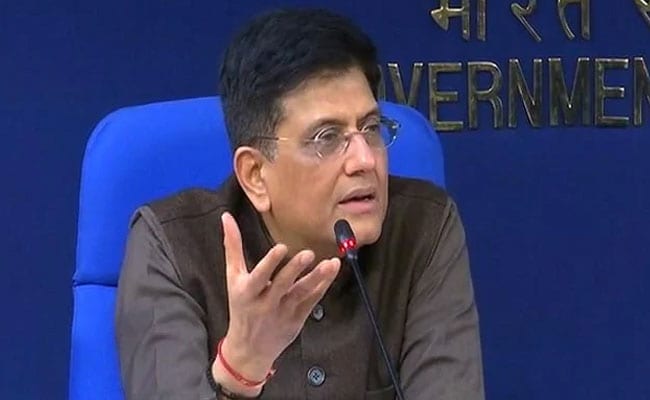Special Trains Introduced To Meet Additional Demands, Says Piyush Goyal

Operational cost of the railway since March 2020 to February 2021 is Rs 1,34,361 crore: Piyush Goyal
New Delhi:
Stating that during the COVID-19 pandemic, some special trains on special charges have been introduced to meet the additional demands over different sectors, Railway Minister Piyush Goyal informed Parliament on Wednesday.
He was answering a query on the rise in ticket fares of trains.
He said that the national transporter had earned Rs 12,409.49 crore as passenger revenue between April, 2020 to February, 2021 as against Rs 48,809.40 crore for the same period last year.
In a written reply in the Lok Sabha, Mr Goyal said that in view of health advisory due to COVID-19, regular train services are running as COVID specials on the fare as applicable for regular time-tabled trains.
“During COVID times as passenger demands are not uniform over different sectors, some special trains on special charges have been introduced to meet the additional demands over different sectors as per already published fare for special trains on special charges as applicable.
“Further, unreserved second class has been declared as reserved second class in view of pandemic situation. In view of COVID-19 protocol, fare in short distance trains also varies depending upon categorization of trains as either COVID special second class unreserved express or train on demand/festival special or passenger special,” he said.
In reply to a separate question, Mr Goyal said that the operational cost of the railway since March 2020 to February 2021 is Rs 1,34,361 crore, including the expenditure for the month of March 2020)
Mr Goyal, while replying to a query, on the revenues generated by the IRCTC, Mr Goyal said that in 2018-2019, the e-ticketing website of the railways generated a revenue of Rs 32,070 crore, in 2019-20, Rs 34,055 crore and the earnings dipped to Rs 14,915 crore 2020-21 til February.
He also said that ”e-payment facility is provided to freight customers for collection of freight charges and wagon registration fee. Collection of freight charges through epayment which has gone up from 76.16 percent last year (2019-20) to 83.77 per cent in the current financial year (2020-21), he said.

